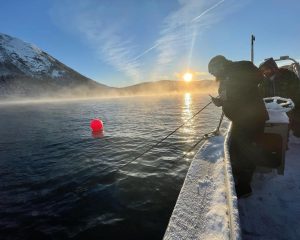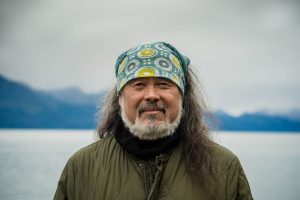
The Native Conservancy confronts an urgent crisis: Alaska Native coastal communities are watching their ancestral waters warm and acidify while industrial forces strip away marine resources that have sustained them for millennia. Founded in 2003 in Cordova, this nonprofit helps Alaska Native peoples secure permanent protection for endangered habitats on their ancestral homelands. Climate change and industrial exploitation threaten both marine resources and cultural traditions these communities have relied on for thousands of years. The Conservancy purchases critical lands and secures them in conservation trusts while combining traditional ecological knowledge with innovative kelp farming to build a “blue-green regenerative economy.” Their work directly benefits Alaska Native elders through monthly traditional food deliveries and creates sustainable economic opportunities for fishing communities facing uncertain futures. As the first Native-led land conservancy in the U.S., they demonstrate that indigenous-driven solutions can restore both land and sea while strengthening cultural sovereignty.

Native Conservancy team researching kelp farming on a crisp Alaskan day, Dec. 2021. Shared from Jim Smith (@jimmwimm), Eyak Athabaskan, Native Conservancy’s Restoration and Elder Subsistence Program Manager.
Eyak fisherman Dune Lankard founded the Native Conservancy after the 1989 Exxon Valdez oil spill transformed him from a fisherman into a community activist determined to preserve his people’s way of life and prevent future environmental disasters. Under his guidance, this Native-led group has preserved over one million acres of wild salmon habitat along 3,500 miles of Gulf of Alaska coastline by purchasing lands, development rights, and conservation easements using $430 million in Exxon Restoration Fund resources. Their kelp farming program received a $9.3 million grant from the National Fish and Wildlife Foundation, with Bezos Earth Fund backing, to develop 20 kelp farms across 6,400 miles of coastline. Their Conservancy’s Reclaiming Land & Water Ties program harvests, processes, and delivers traditional foods to over 50 elders monthly, while their OceanBack initiative trains local workers in sustainable mariculture techniques. As well, specialized internships connect Native youth to ancestral practices while building modern conservation skills.

Dune Lankard, President and Founder of Native Conservancy was named a James Beard Impact Award honoree of 2025
Photo: courtesy of Native Conservancy